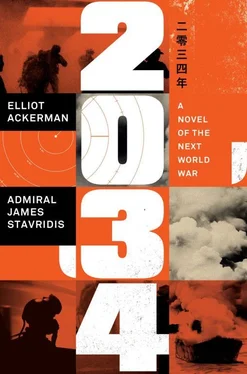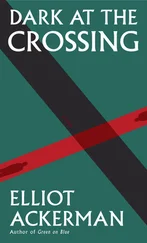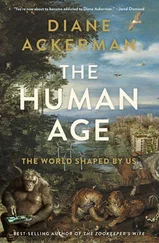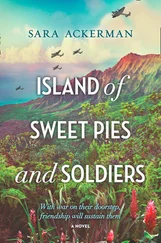He didn’t want to.
What remained were his thoughts, as pure as he could harness them, to be handed to his father.
Wedge found himself unexpectedly exhausted from the writing. He was soon asleep in his chair, his head on the desk.
Time passed, perhaps an hour or more. There was a knock on his door. Wedge felt disoriented, as if maybe it had all been a dream. Perhaps he was back in his stateroom on the Bush . Before Bandar Abbas. Before his stint in captivity. Back to when he was still trying to get close to it.
There was another knock.
“What?” he growled.
“Sir, it’s time.”
“Tell them that I’m coming.”
He could hear the sound of departing steps as he sat up. Wedge gathered his things on the way to the ready room. His notebook. His sunglasses. A pack of Marlboro Reds. He planned to smoke one on his triumphant return. He also thought to bring the letter. After all, it wasn’t a death letter. There was no reason to leave it on his desk, was there?
He glanced at it skeptically.
Wedge eventually chose to leave the letter where it was. What did it matter? Whether for bad weather, or a maintenance issue, he’d likely be back in his stateroom in a few hours after yet another aborted launch. He could mail it then. Walking toward his briefing in the ready room, he took his time down the ship’s passageways, even as every other member of the crew rushed past as though in possession of some urgent piece of news. When Wedge came to an exterior hatch, he thought to take a minute to grab a breath of fresh air. What he saw caused him to hurry back inside the ship.
The day was sunny, clear, and crisp. The most beautiful flying weather he could remember.

06:42 July 30, 2034 (GMT-4)
Washington, D.C.
Hendrickson insisted Chowdhury catch the night flight. “Don’t wait until morning,” he said. “Get back here now .” On the phone Hendrickson confirmed everything Patel had said in the canteen. Wisecarver had rebuffed the Indian defense attaché when he’d come to the White House. The defense attaché had met with Hendrickson unofficially (at a Starbucks) to reiterate India’s intention to take military action against either party—Chinese or American—who further escalated the crisis. Hendrickson and Chowdhury had this conversation over an unsecured landline between Washington and New Delhi. What did it matter if the Indians intercepted their call? They’d already intercepted their emails. Perhaps it would assuage them if they knew two national security staffers were taking matters into their own hands.
Chowdhury’s flight had been bumpy, with heavy turbulence over the Atlantic. When he landed at Dulles, Hendrickson was there to meet him. On the drive in from Northern Virginia, Hendrickson told Chowdhury the one thing he hadn’t been able to mention over the phone. “All that’s stopping the launch at this point is the weather.”
“The weather?”
“The Enterprise is ready,” Hendrickson said gravely. “The planes are fueled and armed. The pilots are briefed. After Galveston and San Diego, the weather’s been erratic.”
“So how much time do we have?” asked Chowdhury.
“Like I said, we’ve got until the weather gets better. After that, they launch.”
Chowdhury’s flight had been virtually empty, which got him an upgrade to first class. Despite the upgrade, he hadn’t slept a wink. Exhausted, he now leaned his head against the car window. His eyes grew heavy, and as they began to close, he noticed the traffic. It was early morning, D.C. rush hour. Except no one was on the road. He wondered when, if ever, they would return.
The drive in was quick, maybe thirty minutes, but Chowdhury felt he’d been asleep for much longer. They had no trouble finding a spot for the car across from Lafayette Park. In front of the office buildings, trash was piled up. Traffic lights flashed on mostly deserted streets. When they crossed the park, they walked past the Peace Vigil. The tent was empty, though at a glance Chowdhury couldn’t tell whether or not it’d been abandoned. The White House was, of course, in perfect order. The uniformed Secret Service agents stood at their posts. The morning’s newspapers sat in reception, along with coffee and pastries. Chowdhury’s surroundings began to reassume their familiar proportions.
To his surprise, Chowdhury’s badge still worked. A part of him had assumed that when Wisecarver dispatched him to New Delhi it was with the expectation that he would never return. Soon both Hendrickson and Chowdhury sat outside Wisecarver’s office door. On the other side they could hear the murmurs of a meeting in progress.
Chowdhury and Hendrickson had no plan beyond confrontation. They would explain to Wisecarver that they knew about the defense attaché’s visit. They would demand that he disclose this information to the president. The pilots on the Enterprise needed to know about the Indian threat. They had no idea that it wasn’t the Chinese defenses alone that they’d have to contend with. If Wisecarver still refused to divulge this threat, Chowdhury and Hendrickson would go to the press, which, admittedly, wouldn’t do much.
The door to Wisecarver’s office swung open.
One by one a group of staffers Chowdhury didn’t recognize stepped into the corridor. They spoke in low tones, sharing sidebar conversations, even laughing here and there. In a word, these staffers—all hand-selected by Wisecarver—projected confidence. Last out of the room was Wisecarver himself.
He stepped across the hall, his hand on the doorknob to the Oval Office.
“Sir, do you have a minute?” asked Hendrickson.
Wisecarver froze, his hand still on the knob. At the sound of Hendrickson’s voice, he slowly turned over his shoulder. “No, Bunt , I don’t have a minute.” If there was any doubt in Chowdhury’s mind as to how much of a nuisance Hendrickson had made of himself over the preceding weeks, it was now obvious.
“Millions of lives are at stake,” interjected Chowdhury, “to say nothing of an international radiation-induced pandemic and the collapse of the global economy, and you don’t have a minute?” He was shaking, but managed to add, “You have an obligation to pass on what you know.”
Wisecarver released the doorknob. “Do I have an obligation to pass along misinformation?” He took a step closer to Chowdhury, invading his personal space. “Also,” said Wisecarver, as he ran his eyes intrusively over Chowdhury, “aren’t you supposed to be back in New Delhi?”
That word again, back .
Chowdhury didn’t hesitate this time. He knew exactly what it meant. Had he come this far, had his family endured so much, only to turn back ? And back to what exactly? He was here; only a shut door separated him from the most powerful office on earth. He was in possession of knowledge that could save this country— his country—if only he could convince Wisecarver to step away and let him pass to the other side.
But there would be no convincing him.
Of this, Chowdhury felt certain.
That word, back —he conjured it into a necessary rage. If Wisecarver wouldn’t step aside, Chowdhury would move through him. He reached for the doorknob. “Where do you think you’re going?” snapped Wisecarver. Chowdhury shouldered into him. The two struggled, their arms hooking, their chests pushing against one another. Neither was a fighter, so the scene quickly turned sloppy, with both Wisecarver and Chowdhury losing their balance and taking an amateurish tumble to the floor.
Hendrickson tried to separate them.
Читать дальше













